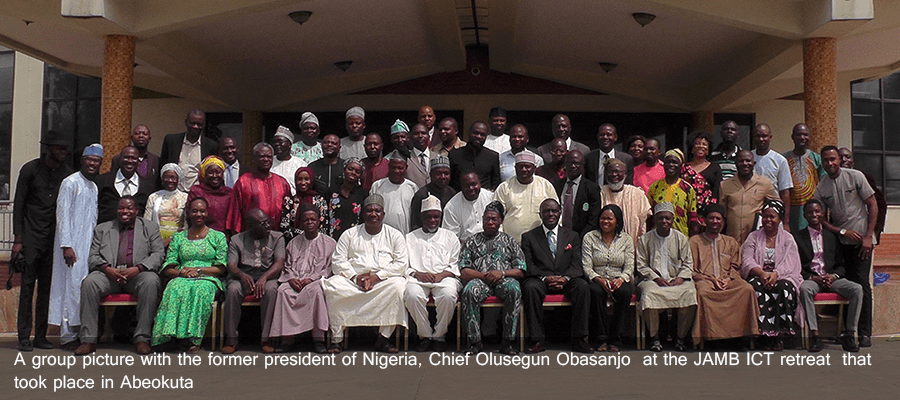Educational Issues
Protecting the Integrity of Nigerian University Admissions and Public Education -By Bámidélé Adémólá-Olátéjú


The Joint Admissions and Matriculation Board (JAMB) designed the United Tertiary Matriculation Examination (UTME) as a standardised test for prospective candidates seeking admission into tertiary institutions in Nigeria on problem solving, critical thinking, the principles and concepts in subjects requred for their chosen course of study. For the most part, the UTME serves its intended purpose even if it is not perfect. Arguments abound for and against the test. It is true that many barely made the cut off mark, and yet they graduated First Class. Some scored high in UTME but flunked out of school within a year. Add to that is the way Nigerians game the system, by paying for special centres where answers are handed to students, a problem the Computer Based Test was designed to combat. Even at that, people still pay unscrupulous elements in JAMB to alter scores. In a country that celebrates mediocrity and where cronyism is king, JAMB remains the only way for the poor but talented student to get a fair share. The UTME is not a perfect test. It was not designed to be. I’m yet to see any standardised test that is. It does not capture crucial factors that contribute to success in the University, like discipline, self-motivation, ambition, organisation, persistence and personality.
No matter the spin on the 120 cut-off mark, it remains the biggest monument to mediocrity in Nigeria so far! We all know that the secondary school curriculum in Nigeria is intellectually trivial and the results are not a true measure of the students’ abilities, given the proliferation of private schools who will do anything to improve their enrollment, including helping their student pass exams, serve as special centres and access leaked questions. UTME remains the only opportunity for bright, poor students to have a stab at higher education. It helps admission officers to make a choice that will benefit the student and the school. There will always be exceptions but UTME remains a reliable and good predictor of classroom performance and academic achievement. It does a fairly good job of placing students where they belong.
For the Nigerian university, things are very hollow these days. While insiders lament the viciousness of the internal politics at their institutions, regrettably, external political positions inform and guide the internal politics. The world outside the campus sneaks into academic affairs as exemplified by the decision on this year’s cut-off mark. Lowering test scores for admissions is another way of deepening the crisis in Nigeria’s tertiary education. Higher education faces a particularly difficult time in Nigeria as it wallows in academic mediocrity. Universities have refused internal reforms and the old model no longer works. They have refused to accept the fact that the old model cannot produce the work force needed for today’s knowledge economy. The old model has exhausted itself! There can be no technological breakthrough nor cultural renaissance when the tools and methods used 40 years ago are still being used to teach a vast body of students in an age of apps. There is not enough money to stock libraries, to equip laboratories and fund research. Resources are stretched beyond breaking point as classrooms and lecture theatres are filled to the brim. Students live in squalor in hostel balconies, where they are primed for indecency instead of character. In the larger society, there is little appreciation for what higher education represents, except the paper the degree is written on.
As the cut-off mark generates its own furore, members of the Academic Staff Union of Universities (ASUU) are on industrial action. Universities have managed to entangle themselves in a web of public cynicism and low expectations, which has led them to succumb, inevitably, to inertia. I still dont understand why our leaders are afraid to admit it to Nigerians that university education is not for everyone. Someone needs to wake up, grow a spine and ask for the abolition of tuitionless higher education – which is not done anywhere else. No cost higher education is a colonial hangover that must be done away with. It is the state’s responsibility to provide good education to its people up to secondary education and no more! The lack of tuition has robbed universities of funds and it has promoted an academic environment polluted by political interference and plagued by few resources.
By allowing 30 percent as the base requirement for admissions, we are encouraging future Nigerian workers, policy makers and leaders to embrace practices that perpetuate their inferiority. University education is the highest level of learning there is. We must accept that it is not for everyone. That is why it is very sad that this education policy created by educators, who ought to know better, is creating an anti-meritocratic behavioural pattern that would marginalise smart students as a response to the group problem of below average students. What lowering admission to pave way for the 30th percentile means is that a reward system has been created to admit students with low scores in certain universities. It is a destructive agenda that is tantamount to the equity of mediocrity, when JAMB lowers the bar to such ridiculous levels. Policymakers owe it to all citizens to do all they can to protect the integrity of university admissions and public education. The crux of the matter is: We must resist the impulse of turning our universities into academic wastelands. The paths of political interference, academic sloth, and mediocre achievement will ultimately lead us astray and endanger Nigeria.
Bámidélé Adémólá-Olátéjú a farmer, youth advocate and political analyst writes this weekly column, “Bamidele Upfront” for PREMIUM TIMES. Follow me on Twitter @olufunmilayo

















